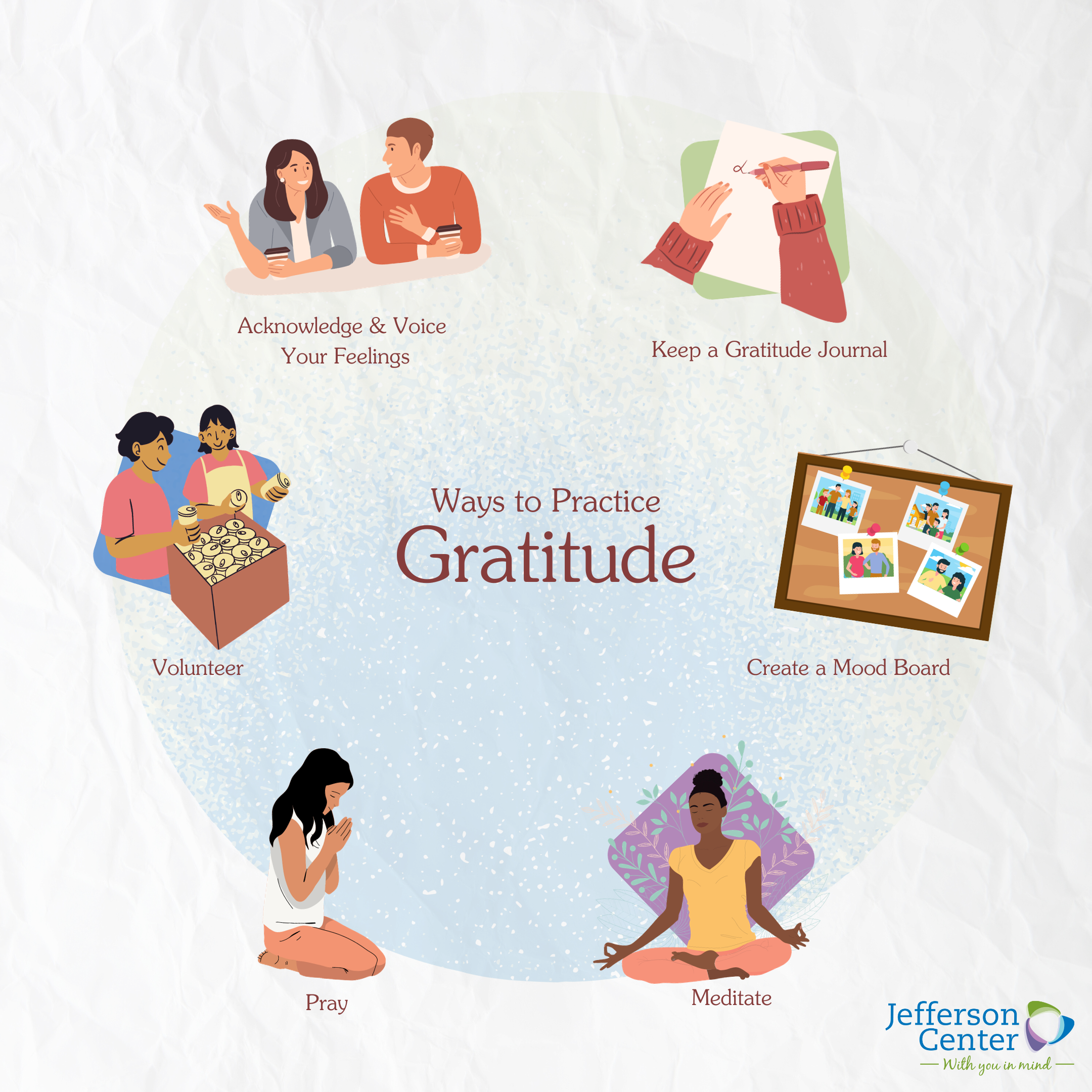Why Practicing Gratitude Is Important and the Best Ways to Do It

Throughout our lives, we are told to be thankful and show gratitude for what we have and those around us. While we know it’s important to be grateful, sometimes it’s hard to be, especially during difficult times.
Actively practicing gratitude can feel like a strange concept, especially when you’re feeling down. However, practicing gratitude is one of the best things you can do for yourself and those around you. Here’s how gratitude can improve your well-being and tips for how to practice it in your daily life.
What is Gratitude?
Gratitude is the feeling of appreciation for something or someone that creates long-lasting feelings of positivity. It allows us to recognize the good in our lives and see that sources of goodness are available to us. According to Positive Psychology, gratitude is a selfless act. They state that gratitude’s “acts are done unconditionally, to show to people that they are appreciated.”
By showing those around us that we appreciate them and what they have done, we are able to form new and stronger social bonds. We can successfully connect to those individuals and allow them to connect with us, creating a better understanding of each other. By forming these bonds, we are able to expand and develop our levels of social wellness, improving our emotional, physical, and mental health.
How Practicing Gratitude Affects Our Health
Practicing gratitude not only benefits our emotional well-being but also our physical and mental. In 2019, a study was conducted researching the effect of gratitude intervention on women with breast cancer. The study found that with the intervention the women’s cognitive, self-esteem, and feelings of optimism all increased. As the women were reminded daily of the good things in their lives, their mental health improved. Dr. Robert Emmons, the scientific leader in the study of gratitude, found that grateful people are more stress-resistant, have a higher sense of self-worth, and are more optimistic.
While it brings no surprise, gratitude has a major impact on our mental health. Anxiety and Depression are incredibly complex feeling that we experience but do have one major trait in common with each other; negative thinking patterns. When we find ourselves in a constant state of revisiting negative experiences from the past or ruminating on unknowns in the future, that cascade of negativity can wash out the positives in our lives. This is where practicing gratitude can be most helpful day-to-day.
Gratitude is also great for our physical health. In 2017, researchers found that introducing gratitude intervention through gratitude journaling helps reduce the risks associated with heart failure. Research has also shown that people who have had access to gratitude interventions sleep better. In a study published by Personality and Individual Differences, researchers found that participants who practiced gratitude felt healthier overall and experienced fewer aches and pains. With all of these great side effects practicing gratitude seems like it could be the best thing for our overall health.
How You Can Practice Gratitude In Your Daily Life
There are many ways you can practice gratitude, here are a few of the ways you can practice it in your day-to-day life:

To get started on your own gratitude journal, we’re giving you the first page!
Hopefully, these activities will inspire you to practice gratitude in your day-to-day life. Whether it be giving a hug to a friend, serving a meal to someone in need, or making a gratitude board, there is no wrong way to show that you appreciate your life and those around you.
This season, find all of the things in your life to be grateful for with the Jefferson Center. If you or someone you know is in a crisis, please call us at 303-425-0300 or by calling the crisis line at 844-493-8255. The 24/7 crisis walk-in center and withdrawal management program is open at 4643 Wadsworth Blvd, Wheat Ridge, CO 80033.
- Kiara’s Note – Blog
- Mental Health Matters – Blog
- Voices of Hope – Blog
- Humans of Jefferson Center
- Addiction & Substance Use
- Anxiety
- Child Mental Health
- Crisis and Trauma
- Depression
- Exercise
- Just The Facts
- LGBTQIA+ & Pride
- Medicaid
- Men’s Mental Health
- Parenting
- Recovery
- Senior and Older Adult
- Socializing
- Stigma
- Stress
- Suicide Prevention
- Support & Advocacy
- Teen’s Mental Health
- Treatment Options
- Women’s Mental Health